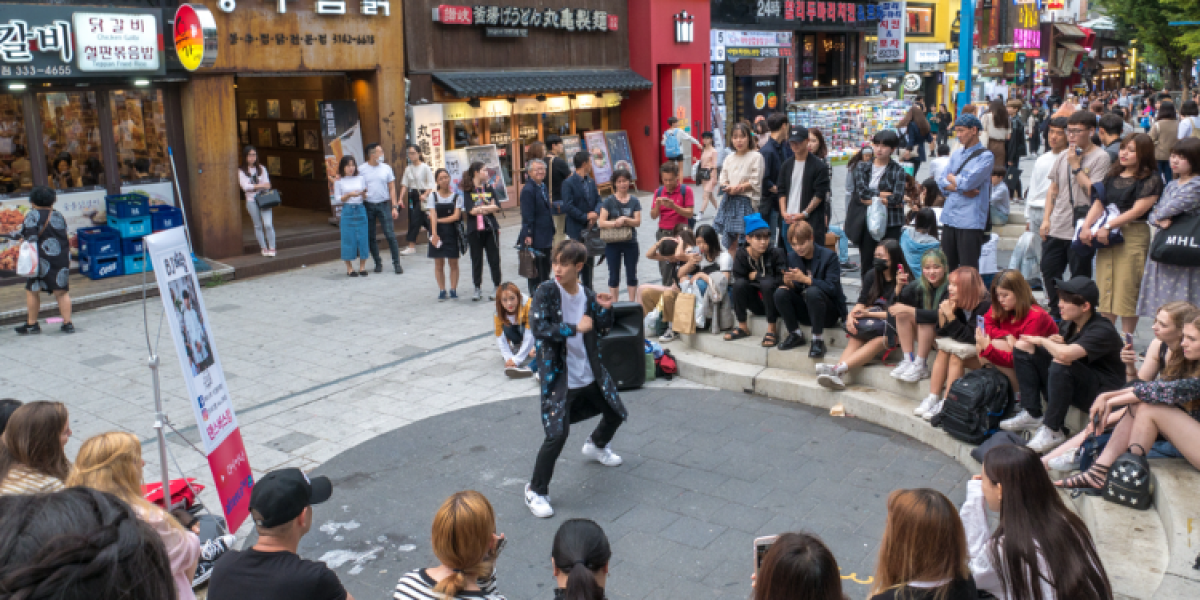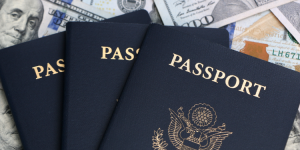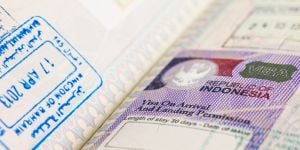
The Hallyu visa to South Korea is finally available after one year of discussions. Officially branded "K-culture training visa", it should allow foreigners to stay up to two years in South Korea to either discover its unique artistic scene or realize their dream of breaking into the entertainment industry. The government is also considering the introduction of a digital nomad visa.
The Hallyu visa: the ultimate pass for K-Culture enthusiasts
What was considered a short-lived fad only a few years ago has now become a gigantic trend worldwide. In 2020, South Korea managed to export more than 10 billion dollars worth of K-culture productions: films, series (K-dramas, Korean dramas), and music, including the famous K-pop or Korean pop.
The "hallyu", or Korean wave in English, is the result of a long-haul strategy initiated by the Korean government in the 90s amidst an economic crisis. Early in 2022, the government took a new step to promote Korean soft power by announcing the introduction of a new visa for Korean culture lovers. While the name "Hallyu visa" was initially translated into "visa for K-pop fans", the visa actually targets all Korean culture lovers at large. To be eligible for the Hallyu visa, foreigners will have to enroll in an art school, either dance or music or any other form of art.
Until now, foreigners looking to perfect their art in South Korea were limited by the validity of the tourist visa, which is considered too short (90 days maximum). Alternatively, candidates could apply for a student visa which, unfortunately, required enrollment in a university or language school. The South Korean Working Holiday Visa was not suitable either. The most appropriate one to apply for was the E-6 (the culture and entertainment visa). However, it wasn't easy to obtain since it required a contract with an entertainment agency.
These already existing visas were very expensive and did not meet the aspirations of the applicants, so the Hallyu visa aims at responding to these needs. This new visa will allow international students to be trained in an accredited school and study whatever they want to achieve. The Korean Ministry of Culture, Sports and Tourism also specified that applicants must enroll in a government-accredited institution.
South Korea will soon have its digital nomad visa
In the same vein, the Korean government is considering the introduction of a digital nomad visa. Since the Covid pandemic, interest in this new type of visa has been growing, and the number of countries offering it is on the rise. Therefore, South Korea aspires to enter the same league with its own digital nomad visa. The government also wants to show its awareness of the new organization of work and the expectations of modern workers, a change in perception that has also accelerated since COVID. In fact, nationwide lockdowns have triggered a boom in remote working. More and more employees yearn to reconcile their professional goals with their personal aspirations. Working in a better living environment is one of their biggest expectations.
Major corporations now offer their employees the opportunity to work from home, either in the country or abroad. South Korea is already creating new hubs to stand out from other countries. It is indeed investing in Busan, a famous coastal tourist city. On February 6, Busan saw the opening of a hub in the chic and modern Asti Hotel, not far from the railway station. The country is determined to capitalize on its high-tech image to attract digital nomads.
Enter the new Queen of soft power
Globally, digital nomad visa attracts more and more professionals, be they engineers, computer scientists, designers, singers, artists, dancers, writers, etc. And South Korea is definitely not off the hook! The country has already started its seduction campaign aimed at digital nomads and international artists, boasting its rich culture, including music, cinema, series, food, beauty, and fashion. This Korean industry is well-exported and quite widespread, and its music stars are undoubtedly among the most influential ambassadors of Korean soft power. Moreover, the opportunity to join Korean bands fuels the dreams of breaking through in South Korea. In any case, it seems that the Hallyu and digital nomad visas have a common ambition, which is to attract more foreigners and get Korean culture to influence the international artistic and economic scenes.
But who is eligible, and what are the conditions to be met? Aspiring artists plead for no age limit, pointing out that many of them are over 30.
According to them, an age limit (modeled on the Working Holiday Visa, for example) would exclude many potential candidates and be counterproductive for a country that intends to attract more foreigners. Candidates also stress that they are likely to have more financial means than high school and university students. This problem is less of an issue for the digital nomad visa, which, in its very spirit, has no age limit but income requirements. Like other countries offering digital nomad visas, South Korea will ensure that the applicant has enough monthly income to live on.
For the moment, there's very little information about the requirements. The Ministry of Culture will announce more details next month.
Useful link:



















